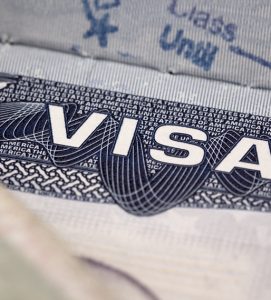How can E-2 Visa help Pakistani citizens live and work legally in the US?

Although immigration law can be very confusing, to those who are in the know, there are plenty of opportunities for citizens of other countries to legally live and work in the United States for extended periods of time. One such opportunity is with the E-2 Treaty Investor Visa. This visa, also known as the Treaty, Trader, or Investor Visa, provides the opportunity for a foreign business owner or entrepreneur to live and work in the United States for the purpose of developing a business. Pakistan is one of the treaty countries and currently E-2 is one of the best options available for Pakistani citizens looking to live and work in the US.
Over the years of my law practice, I have received numerous calls from Pakistani citizens inquiring about various immigration options. One of the most viable options, and also most overlooked options, for those looking to live and work in the US from Pakistan, or any other treaty country, is the investment option (E2). I believe the reason it is often overlooked is that it gets confused with the EB5 program, which is a high-investment program. Many individuals who could not satisfy the requirements of the EB5 program are shocked to discover that the E2 investment requirements are much more attainable. The typical recommendation for a “substantial investment” with the E2 program is around $100,000.
Obviously, this is not just an open invitation for anyone to throw together some half-baked idea about “starting a business” in America and expect to be granted permission to live and work in the United States. There are some very specific requirements involved in obtaining E-2 Visa status from the United States. The most important requirement for obtaining the E-2 Visa is that the applicant must be from a treaty country with the United States. Once this requirement has been satisfied, the applicant must also demonstrate the intention and capability of making a substantial investment ($100,000 recommended) in the intended business enterprise in the United States. This means that you must have the willingness and financial means to risk a substantial amount of money in the attempted creation/growth of this business endeavor. There are some restrictions on the type of business you can develop and talking to an immigration attorney would be the best course of action.
Although there can be some variation in the approval duration, when an E-2 Visa is approved by the United States, it is generally approved for a period of two years. This timeframe can vary depending on the business venture proposed and specifics related to the treaty. However, the good news is that the E-2 Visa can be extended indefinitely, typically in two-year increments.
Another benefit to the E-2 Visa is that immediate family members are able to obtain Visa status and accompany the E-2 Visa holder to live in the United States. The timeframes for the family visas will vary as well, but they are typically tied to the duration and extensions granted to the E-2 Visa holder. The spouse of the E-2 Visa holder is also permitted to obtain a work permit while living in the United States.
As with any Visa, there are numerous, specific requirements that must be met in order to qualify for this Visa. It is recommended that you consult with an experienced Immigration Attorney to avail yourself of the best chance of succeeding when trying to obtain the E-2 Visa.
You can read more information about the E-2 Visa program here: https://abeeraminlaw.com/practice-areas/business-visas/e-2-visa/
The author of this Article is an immigration attorney who practices US immigration law with offices in both New York and New Jersey. You can reach her at immigration@abeeraminlaw.com or (877) 960-0424.


